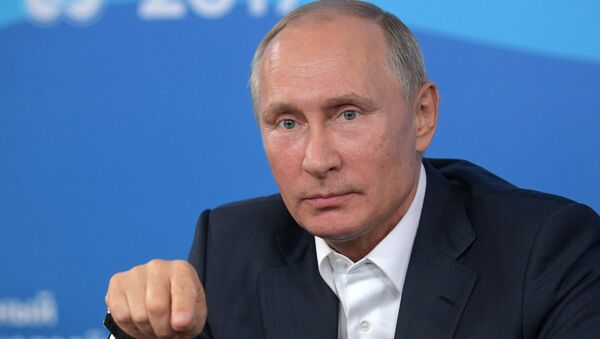"We spend our resources on rivalry… and such situation not always result in a positive result for everyone, both for winners and for losers… In any case it is necessary to strive for the situation, when this rivalry does not… develop into hostilities and far less into war. We should exert maximum efforts to strengthen the other line, the line of cooperation in search of solution to common challenges and problems. If we are able to construct the relations in such a manner, everyone will certainly benefit from it," Russian President Vladimir Putin said during the 19th World Festival of Youth and Students.
Paris Climate Deal
He also once again confirmed Moscow's commitment to the Paris climate deal and expressed hope it would have positive outcomes, despite "different opinions" on the agreement.
"Not so long ago, the relevant decisions aimed at prevention of the climate change on our planet have been made in Paris. Russia backs these decisions and has undertaken rather tough commitments to curb the [carbon] emissions… and is planning to implement these accords," Putin said.
"Let's hope that it will have certain positive results, however, there are different opinions on the issue," the president said.
Among the most famous climate change skeptics is US President Donald Trump, who is well known for his denial of climate change. According to Vox's estimates, he has tweeted skeptical remarks regarding global warming at least 115 times.
In June 2017, Trump announced the US's withdrawal from the Paris climate accord, which envisages a reduction to global carbon emissions as well as financial assistance to the countries most affected by pollution. Previously, the Obama administration pledged to cut harmful atmospheric emissions by up to 28 percent by 2025.
The Paris deal was adopted within the UN Framework Convention on Climate Change in December 2015 and came into force in November 2016. The accord has been signed by more than 190 countries and ratified by 166. As stipulated in the document, all parties should maintain the increase in average global temperature at below 2 degrees Celsius above pre-industrial levels by reducing greenhouse gas emissions.



